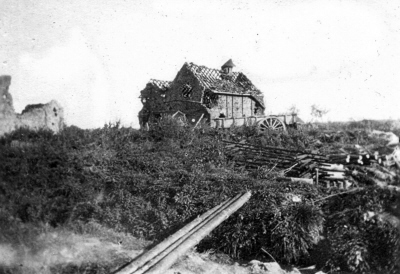Christmas
HAVING written that one word at the top of the page, it seems a difficult and unnecessary task to find anything to say about it. It has the same fundamental meaning for us all, however we spend it. Nov, indeed, new associations are added to it, and it rings like the cry of a trumpet above the dreary and disheartening battlefield. We are not likely to forget the extraordinary scenes that took place last Christmas at the Front ; how men whose one object was to kill each other voluntarily agreed to a truce and met and fraternised between the lines of death.
It always seems to us that this incident provides a most satisfactory answer to the pessimist who declares that the desire to fight is fixed ineradicably in the breast of man, that there will be war until there is a new Heaven and a new Earth. It has shown us that there is something deeper, something more fundamental in man than this desire to kill— something which the most vital moment of Christianity is able to bring out in all its power and appeal. It seems to show that if mankind could be gripped by Christianity as it is gripped by it at Christmas, there would be some hope, nay, there would be every hope, that rifles and machine-guns and all such inventions of the devil’ are eventually doomed to glut the all-receptive maw of the museum of the future.
But no doubt a School Magazine is not the place to air these Utopian dreams. We are bound down by reality, especially in these times, and perhaps not even Christmas should beallowed to drag us away from the relentless present. But it does ; and therefore we do not intend to give our readers sage advice as to whether a postman’s lot is happier than that of a porter, which is the kind of practical advice many are seeking.’Do the thing that is next you’ is always a sound exhortation, and if nothing seems next you, well, then, go and find it And if, even then, you return perforce empty-handed, keep Christmas and think about it, and you will not have failed in your duty towards the world.
The Elizabethan, December 1915
